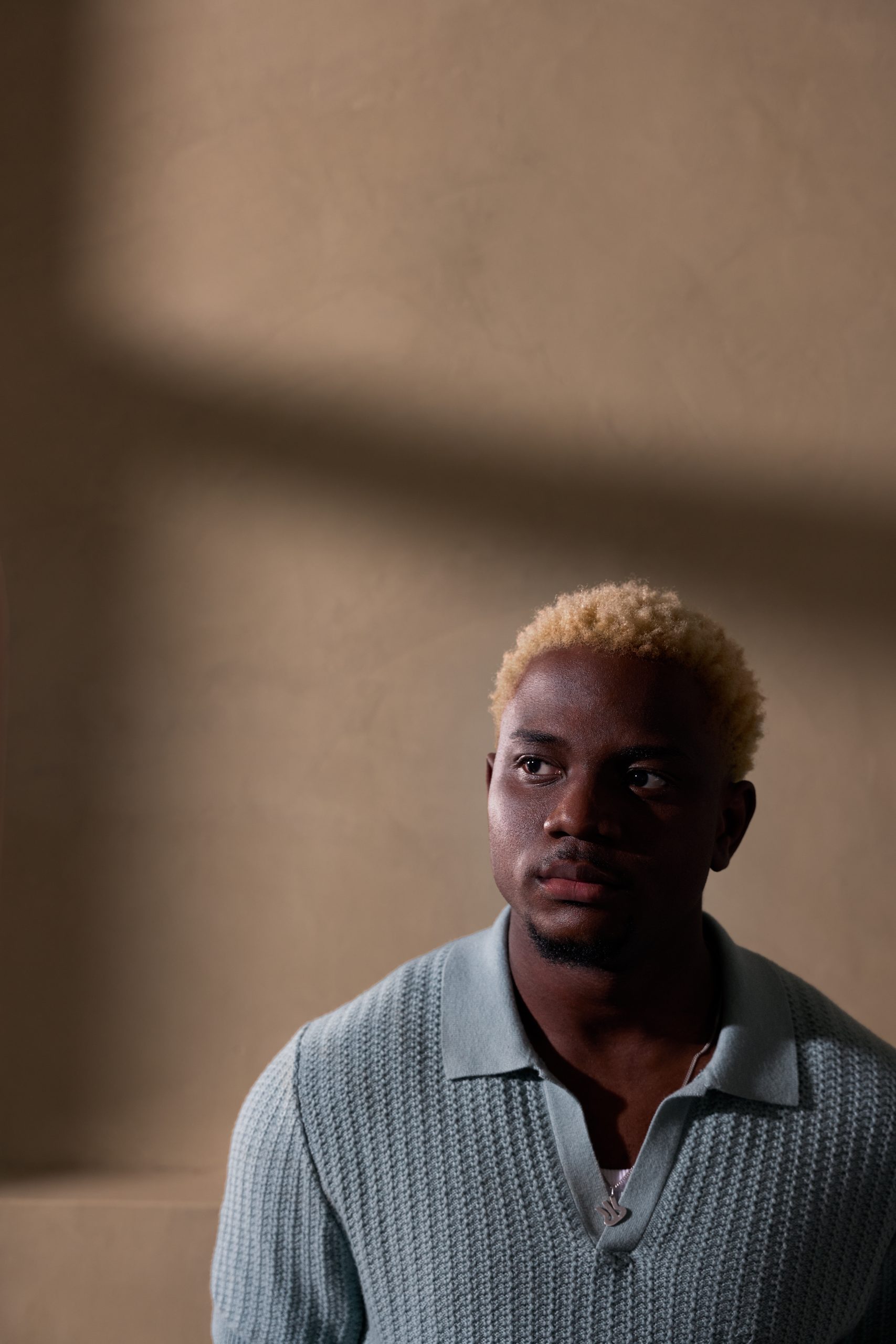 Christine Mason Miller once said: “At any given moment in life, you have the power to say: “This is not how the story is going to end”. Life is full of amazing stories of people rising from obscurity to stardom, from a ‘mess’ to become a divine messenger, from breakdown to pioneering a major breakthrough, from a life of scars to becoming stars. When you have the right attitude towards life, your rise to greater height is secured.
Christine Mason Miller once said: “At any given moment in life, you have the power to say: “This is not how the story is going to end”. Life is full of amazing stories of people rising from obscurity to stardom, from a ‘mess’ to become a divine messenger, from breakdown to pioneering a major breakthrough, from a life of scars to becoming stars. When you have the right attitude towards life, your rise to greater height is secured.
A winning attitude converts a mess into a message, scars into stars, bitterness into ‘betterness’, frustration into fuel, misery into ministry and adversity into advancement. Charles Dickens was lame, Helen Keller was the first deaf-blind person to earn a Bachelor of Arts degree, Plato was a hunchback, Sir Walter Scott was paralyzed, Albert Einstein could not speak until he was four years of age, Franklin Roosevelt was crippled by polio and became the first president to be wheeled into the white-house on a wheel chair!
Where you are coming from is not what defines you but rather where you are going in life. You must endeavour in life to ensure that where you are going in life does not in any way look like where you are coming from. No matter what you are going through in life, you can rise above your background. So many people have risen beyond their ‘shabby’ backgrounds to become people of substance and great impact. God might not will every situation but he does have a will in all situations; God has given you this life because you have what it takes to live it. Our biggest problem in life is self-awareness, the ability to fully realise who we are and what we are truly capable of doing.
“The man who has no inner life is the slave of his surrounding”-Henri Fredrick Amiel
The amazing story of Najat Vallaud-Belkacem is literarily a unique story of grass to grace. Her stunning and meteoric rise from obscurity to stardom in a country that is politically studded with bourgeoisie to the detriment of the proletariat is both amazing and unprecedented in the history of French politics. A woman formed in the crucible of life’s adversity has grown to become a political celebrity and even named “the new face of France” by the international press, who view her as a symbol of a changing and diversifying country.
A recent opinion poll conducted by a French newspaper showed that Najat Vallaud-Belkacem had become the country’s second most popular politician in France. She has meticulously blazed a trail through the heart of French politics. Over the years, she has refused to be limited by her background as the one-time Moroccan immigrant whom the world would have labelled as a fugitive and wanderer in a country designed to politically eliminate people of low class. In a time when immigrants were tagged as vagabonds, a young girl lived her life beyond the verdict of her ‘shabby’ back- ground. Against protracted odds and stifling oppositions, she rose from a poor and humble background to becoming the first French woman ever to be appointed Minister of Education, Higher Education, and Research.
Born to a humble family in Bni Chiker, a village in Morocco’s Rif region, in 1977, Vallaud-Belkacem was the second eldest of seven children. Vallaud-Belkacem’s childhood home was an isolated farmhouse with red earth walls and a thatched roof in the mountainous Rif region of northern Morocco. Her earliest memories are of gathering water from the nearby well with her older sister, Fatiha, now a lawyer living in Paris, and helping their grandfather tend to his flock of goats. Her father, Ahmed, had immigrated to the northern French town of Abbeville before she was born, and when Vallaud-Belkacem was four, he found a job with the French car manufacturer, Renault, as a common laborer and sent for his wife and two daughters to join him.
Settling in a suburb of Amiens, some 80 miles north of Paris, Vallaud-Belkacem felt the full shock of a new culture. She didn’t speak a word of French and remembers being stunned by the vast number of cars- a vehicle she had rarely seen before. The family struggled to have a stable life as they had to discipline themselves to fit properly into a culture that was both strange and disturbing to their background. Najat once described the struggle of getting acclimatised into her new environment when she said: “The fact of leaving one’s country, one’s family, one’s root can be painful, my father had already found his place, but for us, for my mother, it was very difficult to get our bearings”.
The culture of hard work, diligence and resourcefulness was inculcated in them by their Spartan father. Her father set strict rules: Vallaud-Belkacem and her sister were forbidden to flirt with boys or to go out to nightclubs before the age of 18. Not one to rebel aimlessly, she poured all of her energy into her studies, reading constantly and reaching fluency in French by the end of her first year.
Vallaud-Belkacem received French citizenship shortly before enrolling as a law student at the university in Amiens. It was there that she stumbled on a prospectus for the prestigious Institut d’études politiques de Paris (often known as Sciences Po). A teacher discouraged her from applying, saying it was out of her reach, but she took the entrance exam anyway and passed. In order to support herself and lessen the financial burden off her parents, she worked two jobs while earning her Master’s in Public Administration- and met Boris Vallaud, then a fellow graduate student, while studying at the institute’s library. The two married in 2005 and have followed similar paths into government.
She cut her political teeth in Lyon- France’s second largest city. In an unusual twist of fate coupled with her intolerance on the flawed perspective of France’s far right, she decided to navigate the murky waters of French politics by joining the Socialist Party as an adviser to the mayor of Lyon; she later ran for councillor in the region and won. Her election became the object of great opposition in a country where high-class citizens have largely confiscated politics, as politics in France has always been a white man’s business. She was appointed as the Minister of Women’s Affairs in 2012 by the Socialist president, François Hollande, the ministry was reinstated after it was scrapped in the 1980s.
On April 2014, she became a mega minister serving as the Minister of Women’s Right, Minister of City Affairs, Minister of Youth Affairs and Sports. In a major cabinet shake-up in 2014 that saw many Ministers being dropped, she was rather promoted and assumed the role of the Minister of Education, a portfolio that is seen as one of the most important and senior government posts in France, given the massive budget allotted by the government and the premium placed by Paris on education. Her pioneering change to the French Curriculum has triggered great outrage from traditional educators that are becoming obsolete in the face of a changing world.
The mother of twins (Louis and Nour), described her ability to blend politics with family as “reconciling the irreconcilable”, it is amazing how she is blending and finding a healthy balance between a high stakes government career and a fulfilling personal life. In her advice to the youths and their involvement in politics, she said, “I have always advised the youths to get involved in politics. The best way to be happy with your future is by playing a part in it. If you’re just a spectator of collective fate, you’re bound to feel frustrated.’’






